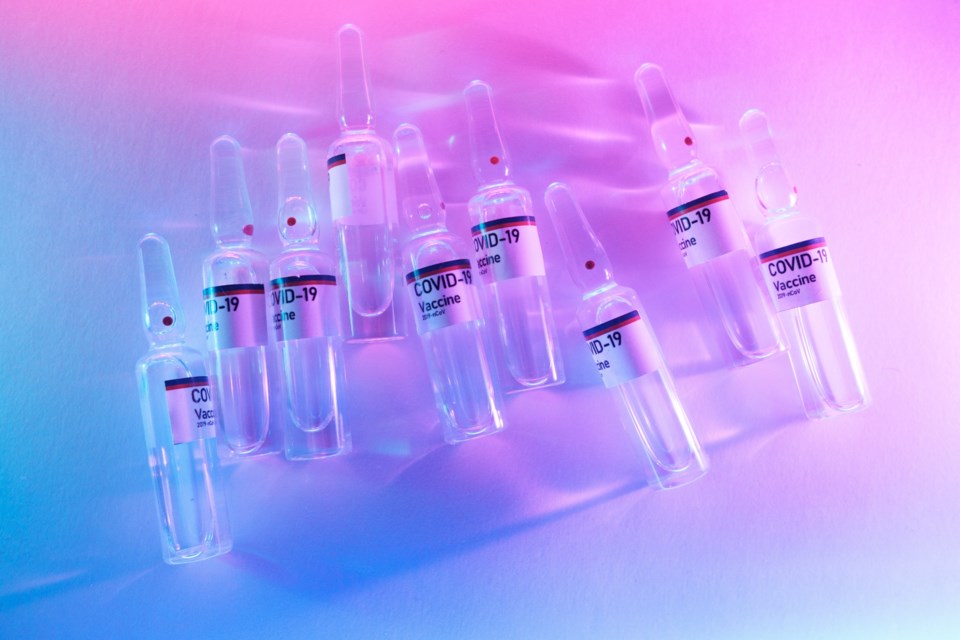With more doses of the Moderna vaccine arriving, more people are eligible for a second dose of the COVID-19 vaccine in the Porcupine Health Unit region.
While there can be up to 16 weeks between the first and second dose of the vaccine, the province recently announced the interval could be shortened, depending on vaccine availability.
There are two upcoming clinics for people eligible for their second dose. While walk-ins are now being accepted for first-dose vaccine clinics, appointments are required for second doses.
The list of people eligible for a shortened dose interval right now include:
- Individuals 80 years of age and older
- Urban Indigenous adults (18 years and older) and their household members who are 18 years and older
- Individuals with identified medical conditions such as transplant recipients, individuals with malignant hematologic disorders and non-hematologic malignant solid tumours receiving active treatment (e.g. chemotherapy, radiation), and recipients of hemodialysis or peritoneal dialysis.
- Health care workers who provide direct patient care, specifically: All hospital and acute care staff in frontline roles with COVID-19 patients and/or with a high-risk of exposure to COVID-19, including nurses and personal support workers and those performing aerosol-generating procedures in Critical Care Units, Emergency Departments and Urgent Care Departments, COVID-19 Medical Units, Code Blue Teams, rapid response teams, and general internal medicine and other specialists involved in the direct care of COVID-19 positive patients
- All patient-facing health care workers involved in the COVID-19 response, including COVID-19 assessment centers, community COVID-19 testing locations), teams supporting outbreak response, COVID-19 vaccine clinics and mobile immunization teams, mobile testing teams, COVID-19 Isolation Centres, COVID-19 Laboratory Services, current members of Ontario’s Emergency Medical Assistance Team (EMAT) who may be deployed at any time to support an emergency response.
- Medical First Responders such as ORNGE, paramedics, firefighters providing medical first response as part of their regular duties, and police and special constables providing medical first response as part of their regular duties.
- Community health care workers serving specialized populations including needle exchange/syringe programs and supervised consumption and treatment services, Indigenous health care service providers.
- Long-term care home and retirement-home health care workers, including nurses and personal support workers
- People working in community health centres serving disproportionately affected communities and/or communities experiencing highest burden of health, social and economic impacts from COVID-19
- Critical health care workers in remote and hard to access communities, e.g., sole practitioner
- Home and community care health care workers, including nurses and personal support workers caring for recipients of chronic homecare and seniors in congregate living facilities or providing hands-on care to COVID 19 patients in the community
- Essential Caregivers of residents in Long-term care home and licensed retirement homes
These new groups are in addition to residents in long-term care and retirement homes, Elder care and assisted living, as well as on-reserve First Nations members and remote and isolated First Nation communities.
The upcoming clinics are:
- Friday, June 4 - Whitney Arena
- Sunday, June 6 - Mountjoy Arena
Book an appointment online here or call 1-800-461-1818.



